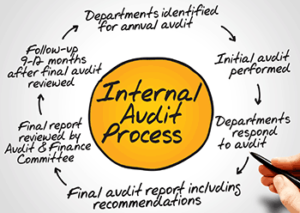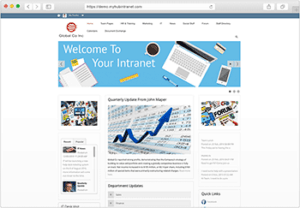Nowadays, it can feel like you can’t even sneeze in the office without having to record the event and report it to multiple agencies! Running a business today is indeed completely different to what it was even five years ago. Government and legislative regulations and guidelines have changed the way that businesses are run and the way that information is recorded and reported. Keeping on top of all the different requirements is a challenging task that many organizations are struggling with. Ensuring workplace compliance is, however, a much easier undertaking when you utilize the office intranet.
What Is Workplace Compliance?
Essentially, workplace safety compliance refers to the efforts made by an organization to ensure that they are conforming to industry regulations or government legislation.
The Importance Of Workplace Compliance
Whether it is in relation to employment, labor, workplace safety or health, there is a host of regulations governing how companies conduct their business. Indeed this culture of corporate responsibility is likely only to increase. 
While the drive towards accountability and compliance is in some ways admirable as it improves health and safety in the workplace and ensures good working practices, it also comes at a cost.
Failure to comply, for example, can be an expensive business. Not only can it result in monetary fees and penalties, it could also result in criminal penalties including imprisonment, as well as irreparable damage to a company’s brand and reputation. The fear of being sued for individual business owners, directors and managers is also a very real possibility.
Just as the world of regulation and compliance has grown on a piecemeal basis, so the response of businesses has often been ad hoc. This haphazard response is not necessarily the most cost-effective approach to adopt. It’s vital, therefore, that businesses adopt a systematic approach to ensuring workplace compliance as the playing field is constantly changing. A business practice that was compliant last week, may not be so this week.
Navigating through this whole minefield is a daunting prospect for organizations, but the office intranet can provide an easily implemented and cost-effective solution.
Here we identify ways in which the office intranet can help ease the burden of workplace compliance.
Automating Compliance Measures

Moreover, the intranet’s document management system will enable you to control and manage compliance information. With an advanced search function, all important documents can be located easily and quickly. So if that inspector gives you 24 hours to produce a key checklist, you will be able to respond immediately without having to search through paper files or emails.
Online Training
An important part of ensuring compliance is the ongoing training of staff. Traditional, face-to-face training sessions are not always the most cost-effective solutions once you factor in venue charges, tutors’ fees and the costs of covering employees’ absence from work.
Intranet-based e-learning systems in comparison are a proven cost-effective and flexible way to deploy compliance-related training. The e-learning could take many forms including webinars, quizzes, how-to videos or blogs.
E-learning has the additional advantage of delivering consistent content to all learners, minimizing disruption to normal business activities and allowing staff to train at their own pace and outside of normal working hours. Another advantage is that e-learning programs can be quickly and easily modified in response to changes in legislation or new guidelines.
Furthermore, e-learning systems provide an electronic record of training and achievement for each individual employee. Again this an important record for auditing purposes and it shows that the employer has a program of activity and is acting responsibly.
Sharing Best Practice Knowledge
The intranet is an obvious repository for information on best practice in relation to workplace compliance. Blogs and discussion forums can be used to disseminate the latest best practice
Organizations can also use blogs and discussion forums as vehicles for employees to raise any compliance issues they may have or to ask any questions around compliance. Employees at the coal face are often the first ones to discover issues of non-compliance and companies should be looking to give staff opportunities to raise concerns in a supportive environment. Given the sometimes lucrative offers from plaintiffs’ attorneys for employees to be forthcoming on apparent wrongdoings or failures, having an open policy with regard to staff reporting any compliance concerns through the intranet is to be encouraged.
Intranet Solutions Offer Flexibility
Electronic systems are much easier to manipulate than paper-based ones. Managing workplace compliance on the company intranet will make it easier to identify and report on compliance. For example, you can easily find out about and run reports on staff members that have completed the updated workplace online discrimination training or key managers that have read the revised OSHA guidance on workplace safety and health.

All this can be accomplished using a single CMS intranet platform. There is no need for a standalone workplace compliance monitoring system which may not integrate well with your other office systems. It will also help to reduce expenditure on expensive consultants and training providers as a great deal of the work associated with ensuring and demonstrating workplace compliance can be achieved in-house. This is an advantage for small to medium sized enterprises in particular that may not have the resources in terms of personnel and time nor the budget that the larger corporations have at their disposal.
A good intranet provider will have all the tools and expertise to meet your organization’s needs in relation to ensuring workplace compliance.
Contact the team at MyHub for a free intranet demo to see how a cloud intranet can simplify the task of workplace compliance in your business.







0 Comments